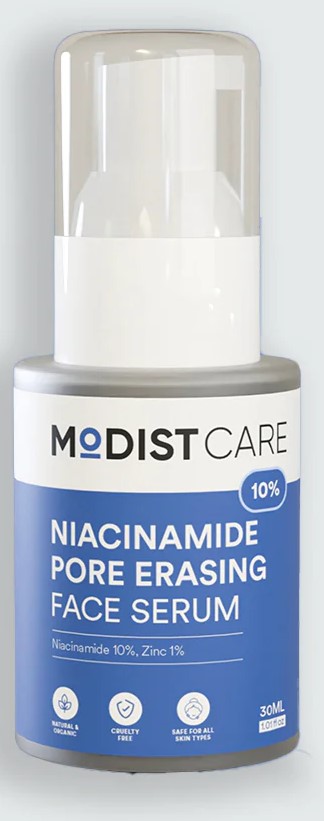


Niacinamide serum is a game-changer in clean beauty, offering powerful skin benefits while aligning with sustainable and ethical skincare practices.
Niacinamide serum has gained immense popularity in the skincare industry due to its numerous benefits. However, with its rising fame, several myths and misconceptions have surfaced, making it difficult for consumers to distinguish between fact and fiction. In this article, we debunk some of the most common myths surrounding niacinamide serum to help you make informed skincare choices.
Purging occurs when active ingredients, typically exfoliants or retinoids, accelerate skin cell turnover, leading to temporary breakouts. Niacinamide, however, is not an exfoliant. It primarily works to strengthen the skin barrier, reduce inflammation, and regulate sebum production. If you experience breakouts after using niacinamide, it may be due to an allergic reaction or an incompatible formulation rather than purging.
A common myth suggests that combining niacinamide with vitamin C renders both ingredients ineffective. This misconception originates from outdated research based on unstable formulations. Modern skincare formulations allow niacinamide and vitamin C to work harmoniously, providing brightening, antioxidant, and anti-aging benefits when used together.
Many believe that niacinamide acts as a bleaching agent. In reality, niacinamide helps to fade dark spots, acne scars, and hyperpigmentation by inhibiting melanin transfer within the skin. This leads to a more even skin tone rather than lightening the skin beyond its natural shade.
While niacinamide is beneficial, excessive concentrations (above 10%) may lead to irritation, redness, or sensitivity in some individuals. Most dermatologists recommend formulations containing 2-5% niacinamide for effective results without irritation. It’s always best to start with a lower concentration and gradually increase as your skin adapts.
Although niacinamide is excellent for regulating sebum production in oily skin, it also provides hydration, strengthens the skin barrier, and reduces redness, making it beneficial for dry, sensitive, and combination skin as well. It is a versatile ingredient suitable for all skin types.
Some users expect visible results overnight. However, like most skincare ingredients, niacinamide takes time to show its full benefits. With consistent use, noticeable improvements in skin texture, tone, and hydration typically appear within 4-8 weeks.
Niacinamide is one of the most stable and well-tolerated skincare ingredients. It pairs well with hyaluronic acid, peptides, ceramides, and even exfoliating acids like salicylic acid. However, if irritation occurs, consider adjusting your routine or consulting a dermatologist.
Niacinamide serum is a powerful and beneficial skincare ingredient, but myths and misinformation can create confusion. Understanding the truth behind these myths allows you to incorporate niacinamide effectively into your routine for healthy, radiant skin.
